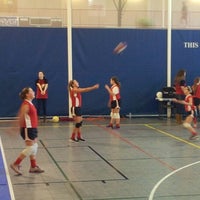
Collecting, disturbing or destroying cultural material.Collecting, releasing, disturbing or destroying plants or animals.Bikes, skateboards, and motorized vehicles.Please remember that the following are prohibited: Go to the Use of Environmental Education Centers page (leaves DEC website) to see the regulations concerning the education centers. Visitors to DEC's environmental education centers should become familiar with the regulations governing the use of the centers as found in the New York State Register and Official Compilation of Codes, Rules and Regulations of the State of New York (NYCRR). For more information about DEC drone policies, visit Drone Use on DEC Managed Lands. To inquire whether a TRP can be obtained, contact DEC's Bureau of Environmental Education at (518) 402-8043. Environmental education centers have their own TRP process. Pursuant to 6 NYCRR Part 623, both hobbyist and commercial use of drones is prohibited at DEC's four education centers except for research or training as permitted under an approved temporary revocable permit (TRP). Practice Leave No Trace Principles (leave DEC website) when recreating on state land to enjoy the outdoors responsibly minimize impact on the natural resources and avoid conflicts with other users.Īll users of Rogers Environmental Education Center should follow all Outdoor Safety Practices for the safety of the user and protection of the resource. Each intern will receive training in the mission and role of programs, the operations and activities of a center, principles of environmental interpretation, and natural history of New York.
Rogers activity center day professional#
The Naturalist Intern Program is a training internship available to those seeking professional experience in environmental education. Rogers offers several accessible facilities and services such as the day use area, picnic tables, nature walk, and pavilion.

General information on accessible recreation includes links to other locations with accessible recreation opportunities and information on permits for motorized access. They can find all their basic needs right here on the grounds: food, water, shelter, air, and space.Ī picnic area is provided for the visitor's convenience. These animals are wild and are able to exist here without the assistance of people. Many species of wildlife make their home at Rogers Center. The careful observer is often rewarded with a view of wildlife interacting with its habitat. Of course, the entire Rogers Center grounds offer opportunities to encounter the natural world. Other outdoor exhibits include information on predators, waterfowl, fish and pond life. visitors can see several species of trout. The trout ponds have been a part of Rogers Center since its inception. Trails traverse woodlands, meadows, wetlands, plantations, and farm fields. It offers 600 acres of a variety of habitats for the walker, bird watcher, photographer, snowshoer, or cross-country skier.

Rogers Environmental Education Center is dedicated to enhancing environmental awareness and appreciation of the natural world. Map: Visitor Center Trail Map (PDF) II Google Earth II DECinfo Locator.Location: 2721 State Highway 80, Sherburne, Chenango County.Contact: Friends of Rogers 60, or by email at or visit the Friends of Rogers website (leaves DEC's website).

** Please check the Friends of Rogers website to verify building hours over holiday periods and during inclement weather.


 0 kommentar(er)
0 kommentar(er)
